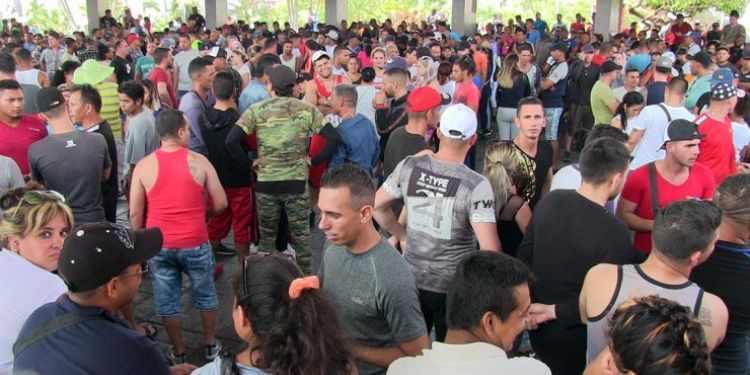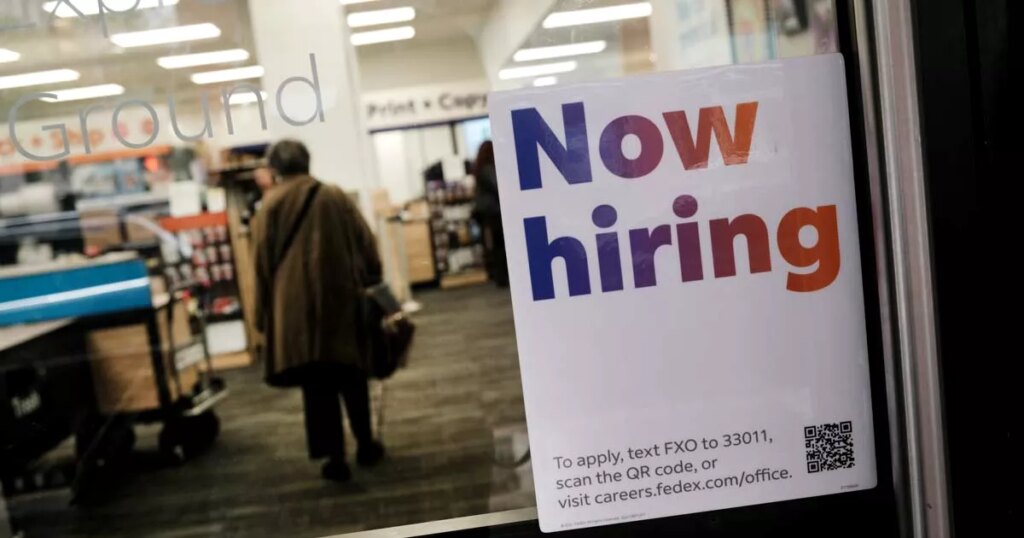MIAMI, United States. — The announcement by the U.S. government of a parole program for the safe, legal and orderly entry to the northern country of more than 30,000 Cubans, Haitians and Nicaraguans has generated uncertainty about what the process that applicants must carry out will be.
The United States Citizenship and Immigration Services (USCIS) highlighted that the beneficiaries must be nationals of the aforementioned countries or be an immediate relative (spouse, common-law partner or unmarried child under 21 years of age) of these. They must also have a valid passport for international travel; be outside of the United States; and have a support person who is based in the United States, the so-called sponsor.
It is precisely the “sponsor” who must take the first step for the applicants by submitting Form I-134 (Declaration of Financial Support), before the United States Citizenship and Immigration Service (USCIS), for each citizen or member of the immediate family you seek to support, including minor children. Federal agencies will then review the sponsor to ensure that the sponsor can financially support the citizens on the form.
Who can be the sponsor?
According to USCIS, to serve as a sponsor, the natural or legal person in question must meet the following fundamental requirements:
Legal presence: Be a US citizen, national or lawful permanent resident; have legal status in the United States, such as temporary protected status or asylum; or be on probation or receive deferred action or deferred enforced release.
Criminal record: Pass background and security checks, including for public safety, homeland security, human trafficking, and exploitation concerns
Economic solvency: Demonstrate sufficient financial resources to receive, maintain, and support the person they agree to support for the duration of their probation period.
USCIS specifies that sponsors filing Form I-134 on behalf of a beneficiary must be willing and able to receive, maintain, and support the beneficiary during their stay on parole.
That federal agency also points out that sponsors must:
- Meet the beneficiary upon arrival in the United States and transport him to the initial accommodation
- Ensure that the beneficiary has safe and adequate housing for the duration of their probation and initial basic needs;
- As appropriate, assist the beneficiary in completing necessary paperwork, such as employment authorization, Social Security card, and services for which they may be eligible
- Ensure that the beneficiary’s medical and health care needs are met for the duration of probation;
- As appropriate, help the beneficiary access education, learn English, secure employment, and enroll children in school.
In summary, the key steps established by USCIS to carry out the parole application process are the following:
- Economic Sponsorship: Fill out Form I-134
- Send Biographic Information: The beneficiary will receive an email from USCIS with instructions on the next steps.
- Submit Petition on the CBP One Mobile App
- Receive Advance Travel Authorization to the United States. After completing the previous step, the beneficiary will receive a notification in their myUSCIS account confirming if CBP (US Customs and Border Protection) will provide them with advance authorization to travel to the United States.
- Obtain Permit for Temporary Stay at the Port of Entry.
- Obtain the Temporary Permanence Permit.
- Obtain the Temporary Permanence Permit.
In a release Published prior to the public appearance of President Joe Biden, the White House issued a statement stating that it was an extension of the same parole process established since last October for citizens of Venezuela.
“Today, the Biden Administration announces that it will expand the successful Venezuela parole process and extend it to nationals of Nicaragua, Haiti and Cuba. Up to 30,000 people a month from these four countries, who have a qualifying sponsor and pass the background check, will be able to come to the United States for a period of two years and receive work authorization. People who cross the border of Panama, Mexico or the United States irregularly after the date of this announcement will not be eligible for the parole process and will be deported to Mexico, which will accept the return of 30,000 people a month from these four countries that do not use these new routes”.
Those interested in thoroughly reviewing the information on the new parole for Cubans, Haitians and Nicaraguans should review the official USCIS website, where the same process developed for Venezuelan citizens is described.
Note: More information in www.uscis.gov/venezuela
Receive information from CubaNet on your cell phone through WhatsApp. Send us a message with the word “CUBA” on the phone +525545038831, You can also subscribe to our electronic newsletter by giving click here.














